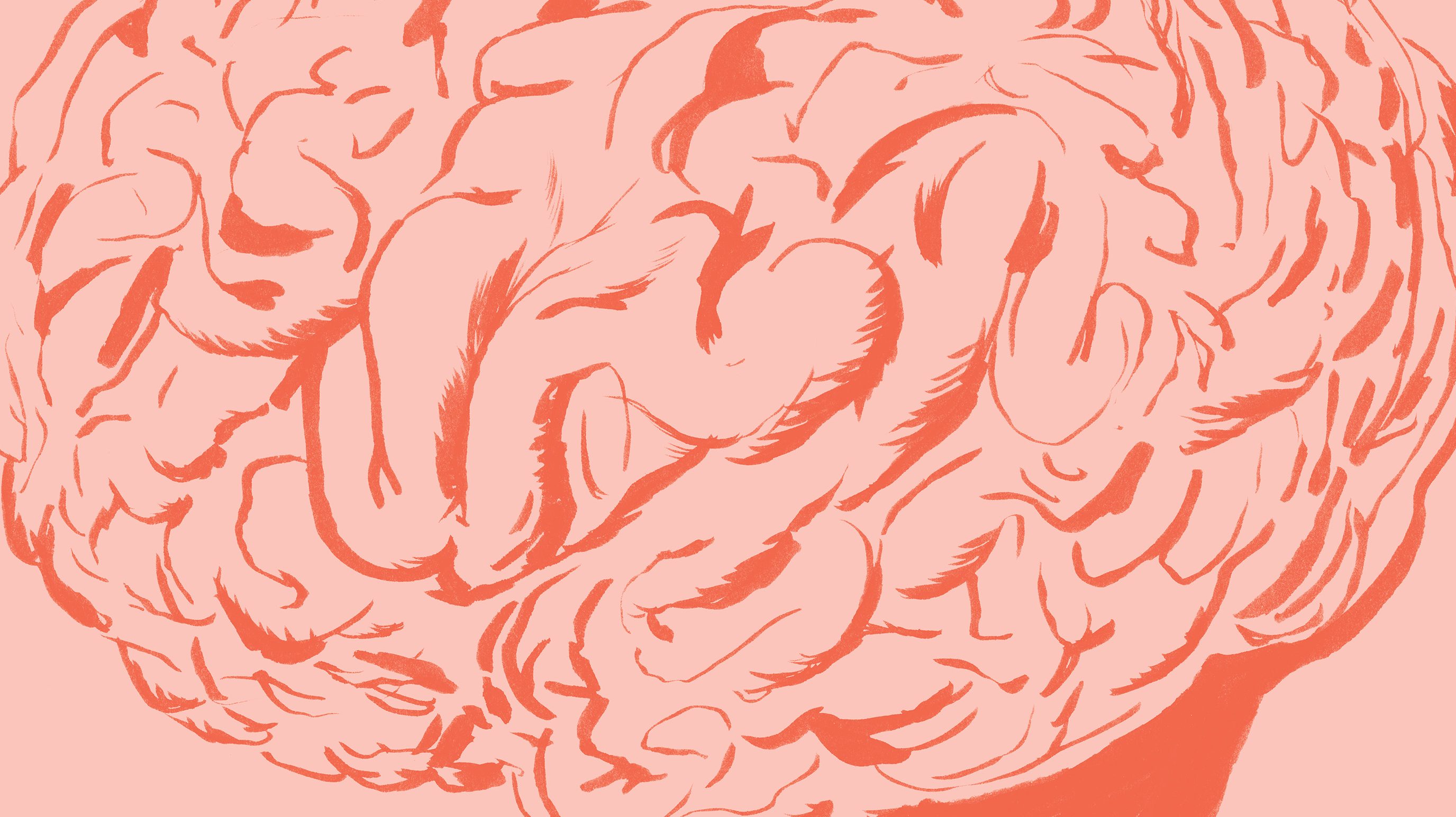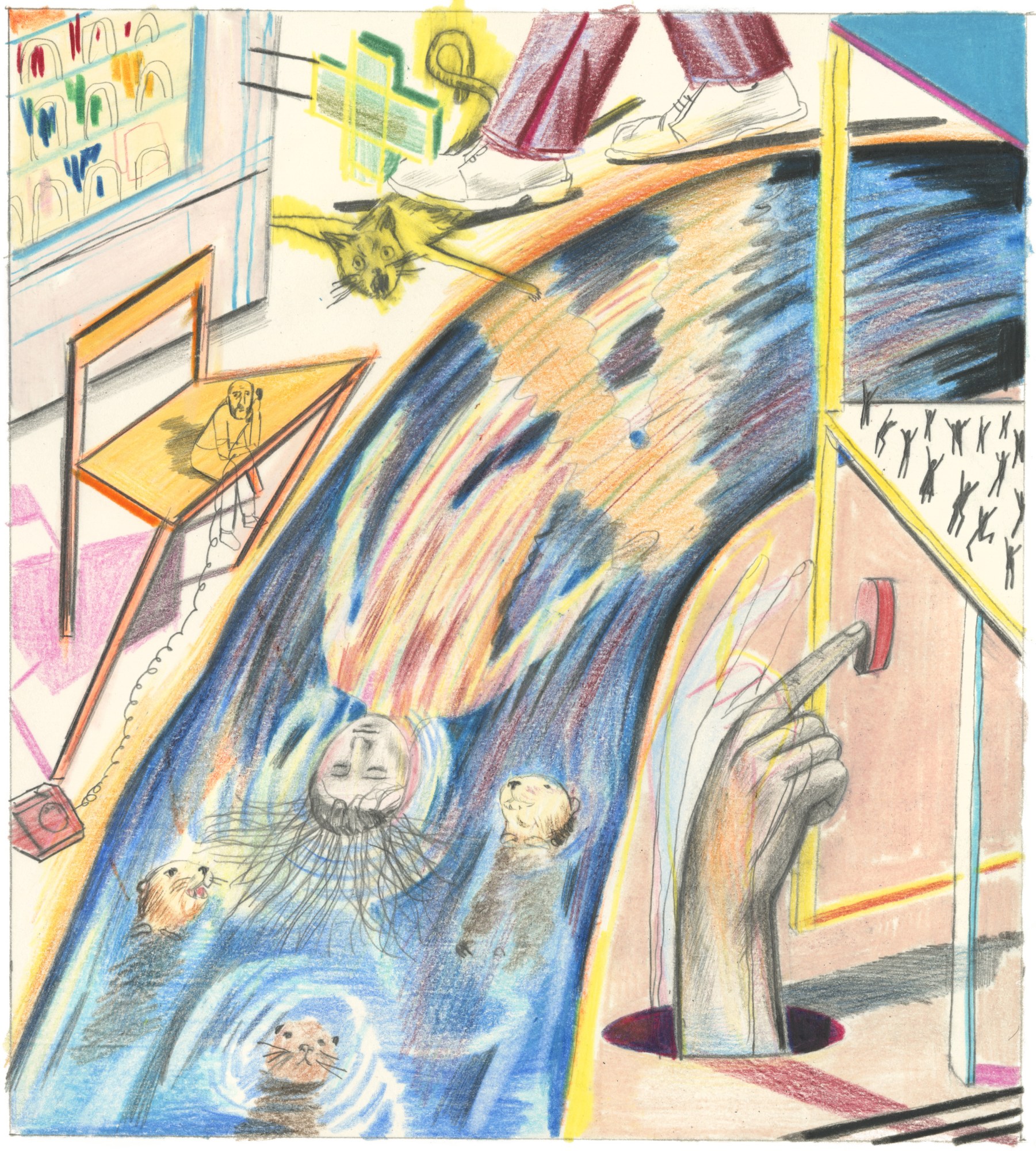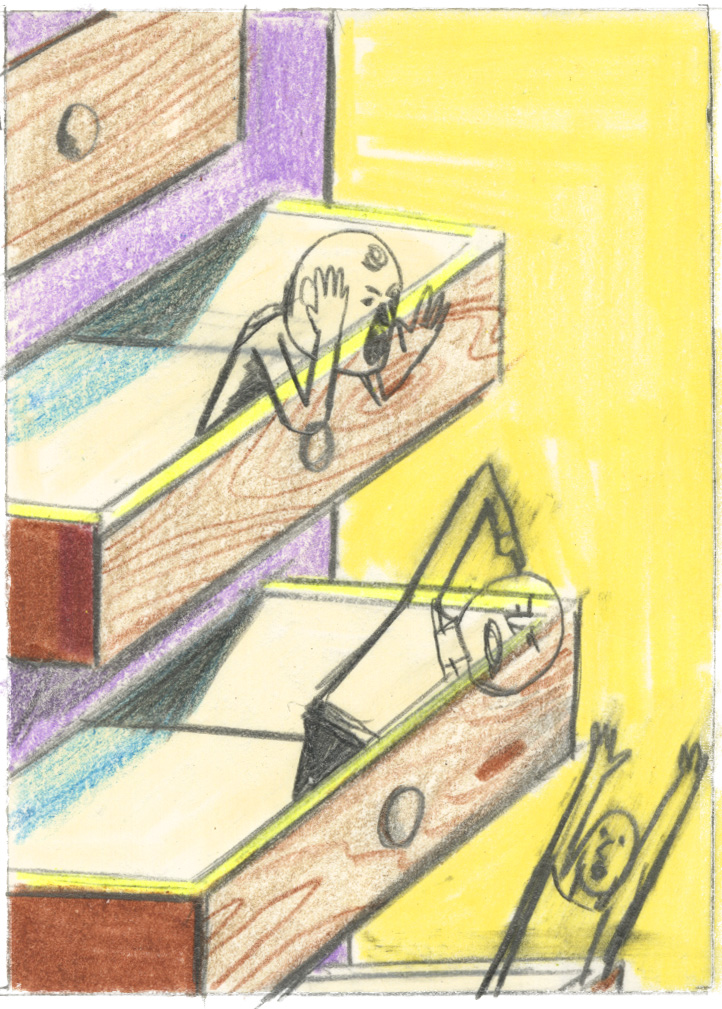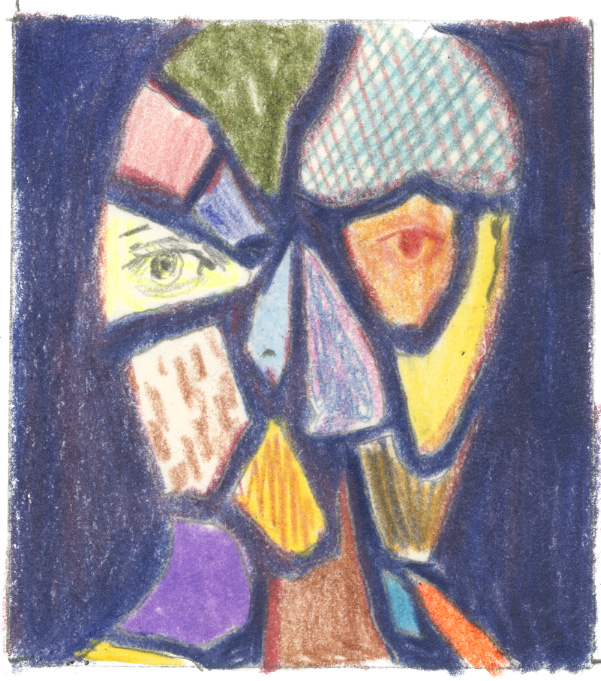Five poems about the mind

DREAM VENDING MACHINE
I feed it coins and watch the spring coil back,
the clunk of a vacuum-packed, foil-wrapped
dream dropping into the tray. It dispenses
all kinds of dreams—bad dreams, good dreams,
short nightmares to stave off worse ones,
recurring dreams with a teacake marshmallow center.
Hardboiled caramel dreams to tuck in your cheek,
a bag of orange dreams with Spanish subtitles.
One neon sachet promises conversational
Cantonese while you sleep. Another is a dream
of the inside of a river, slips down like sardines in oil,
pulls my body long and sleek to chatter about currents
to any otter that would listen. My favorite dream
is always out of stock: effortless Parisian verlan.
In that one I’m nibbling tiny cakes. I’m making
small talk about eye creams in a French pharmacy.
I’m pressing my hand to the buzzer of a top-floor flat
in which there is a fantastic party that’s expecting me.
Zero-sugar dreams never last long. There’s one
pale pink dream I avoid: it fizzes like Pepto-Bismol
flavored Pixy Stix. It’s processed in a factory
that also handles hope, shame, and other allergens.
That dream is like accidentally stepping on a cat,
sudden and awful, heart-wrenching for everyone.
In it, my father says I’m sorry I never call, I never know
what to say, and I finally have the words to reply don’t
worry and I know and hey, we’re good. We’re good now.
We’re all good.
~Cynthia Miller
Cynthia Miller is a Malaysian-American poet, poetry festival producer, and innovation consultant. Her first collection, Honorifics, was published by Nine Arches Press in June 2021.

Search Field
In underpants and undershirt, pink lambs printed on the weave, with me
stirring oatmeal at the sink is what I dream. What it means, the website reads,
is symbiosis: intimacy that never leads to sex. I’m safest in quiet one-way
meetings, sitting like a spider at the center of a web, watching it tremble. To rest in the papasan chair and
have the world widen to dream is to be blurred
as a baby watching her mother clink in the kitchen, background whispers of
belonging soothing a system. Unreal, it seems now,
the flock of sheep in the train window, first glimpse of Pennsylvania after breaking down in New York.
Five field-seconds perfected by fog, duffel snuggled against me
like a child, the wash of creamy daubs against green,
then gone. I’ve not moved for hours. Each opened tab lowers the temp.
I’ve traveled on this rail of fiber optics to quell the panic. Click, click, the fields
go faster, accumulation of wool in the background, no shutdown, no forward.
~Paula Bohince
Paula Bohince, the author of three poetry collections, has published in The New Yorker, The New York Review of Books, The TLS, The Poetry Review, Poetry, and elsewhere. She was recently the John Montague International Poetry Fellow at University College Cork.
Circuitry
By the end of April I was trying my
best not to spill any more electricity
over my cortex. Pacing the old Roman
road stockpiling litter trapped inside
synapses. Begging my brutal to go easy
on me. The circle I want to be loved by
looks like it’s hemorrhaging cortisol.
Wetlands of blood sugar.

Inside the fire what you get is the fire
which is to say my left amygdala is too
small. My mother’s survival was too
small. If experiences shape the brain’s
circuitry then I learned to fear the father
before the arachnid. I’m hauling my
official deficit up to the summit of the
Troodos Mountains.
I’ll fantasize about setting colonial summer
houses alight using dendrites & neurons.
I want so much gone I’m terrified
of moving up. All around the
therapist’s chair I’m setting my finery
down. He keeps asking about intrusive
thoughts. His pencil outlining three
letters I’ve become obsessed by.
I mentalize beheading each axon with
an engraved fountain pen. Loading up
wheelbarrows with thalamus glands
& stale miso. Urchins in the belly for
dinner. A mouth like a paper seahorse
before dawn. I like where I live now
I’m just not happy with the way I do it.
I write quickly into my notebook:
How many of these days belong to the
body of our lives? Next door they’re
making big plans to build a conservatory
out of salt water. They say life needs
to colonize land. My earliest memory
is throwing clumps of gray matter into
the Mediterranean then waiting for
something solid to come back.
At the restaurant behind a faded
Brueghel painting my friends appear so
beautiful in their simplicity. Laughing at
futures full of morning glory. Dopamine
migrating from their red polo necks, an
archipelago of adrenaline withstanding
the crush calling us over spark by
gentle spark.
~Anthony Anaxagorou
Anthony Anaxagorou is a British-born Cypriot poet, fiction writer, essayist, publisher, and poetry educator.
My Sexbot Hal is a Mind Reader
The first thing I ask of Hal is to explain
what it’s like underneath, after you peel
away the crust, mantle, core. I’d always
imagined a cathedral with Chagall windows
and Nusrat Fateh Ali Khan leading the choir,
but Hal says no. The inner landscape of my head
is an armoire of many drawers, with versions of me
running into one, then another, saying: I’m here,
I’m not here, I’m here.
Hal does Ashtanga and meditates.
He’s cut like a temple hieroglyph. When I go out
to the cliff, he doesn’t worry. He can discern a jumper
from a horse, doesn’t pity me for just standing there
with my hands out, waiting for some passerby
to throw me a peanut. Hal understands
it’s his turn to do the washing up,
even though I’m the one
eating cherries at the sink,
knows how the changing seasons gut
pieces out of me, how it is this guttedness that brings
me to the airstrip of his body, the cushion
of his silicone thighs, lighting me all the way home.
I cling to him for his signature lily of the valley
cologne, for how it feels in the aftermath of love—
to be a creature of the sea—tiny, bioluminescent,
gazing across this vast planetary cradle
at all the descendants we won’t have.
One day I know he’ll be gone,
risen early like the Buddha out of a dream,
taking his special knowledge into the world.
There will be no talk of abandonment
or what was left behind. He’ll be out there,
scooping his butterfly net through the high
grasses of the weightless forever, while I stay
here, tying ropes around my wrists—
desire in one hand, suffering in the other.
~Tishani Doshi
Tishani Doshi is a Welsh-Gujarati poet, novelist, and dancer. Her fourth book of poems, A God at the Door (Copper Canyon Press, Bloodaxe Books), has been shortlisted for the 2021 Forward Prize. She lives in Tamil Nadu, India.
Thank You, Antidepressants

Reader, let me tell you how I keep it together:
friendships & antidepressants.
Long walks on the beach with H
(he pretends these are workouts)
& Nutella in bed with R
(she sends boil the water you better have chocolate from her car)
& endless voice notes with L
(she calls them personal podcasts)
& WhatsApp stickers-on-demand from F
(it is time to MILF said her sticker with my face
& red lips on my 40th birthday)
& rants with H (another H)
about weight & the lands that spit us out
& talks under midnight bougainvillea with R
(same R) about our mothers’ & children’s rage
& daily morning phone calls with L
(another L) about nausea & skin & food allergies
she’s sure she’s got though no doctor can confirm
(& I say if you’re sure you got it
then you got it, you got it)
& jokes across continents with H
(another other H) about impossible geographies
& arguments with M about whether we got married
in 2005 or 2006 (I say our first married summer was a year before
the war, & he says no it was the summer of the war,
& we laugh at how we measure time with pain but not without tenderness)
& conversations with G (better name this one: God)
about my dislike for organized religion
& more long voice notes with H
(another other other H) about the opposite of grace.
This happens daily, so thank you, friends,
who are there when the sadness comes,
or when my teeth fall apart
(my teeth do that bi-yearly)
friends who un-scared me
of antidepressants, who reassured me
I won’t become another Z or my grandmother.
& yes, thank you, antidepressants,
& you, reader, who stayed with me,
& might be wondering why so many
of my friends’ names’ first letters are the same,
& the answer is when I said together
(in the first line of this poem)
I didn’t mean it against fragmentation.
~Zeina Hashem Beck
Zeina Hashem Beck is a Lebanese poet. Her third full-length collection, O, will be published by Penguin Books in summer 2022.
Keep Reading
Most Popular
Large language models can do jaw-dropping things. But nobody knows exactly why.
And that's a problem. Figuring it out is one of the biggest scientific puzzles of our time and a crucial step towards controlling more powerful future models.
How scientists traced a mysterious covid case back to six toilets
When wastewater surveillance turns into a hunt for a single infected individual, the ethics get tricky.
The problem with plug-in hybrids? Their drivers.
Plug-in hybrids are often sold as a transition to EVs, but new data from Europe shows we’re still underestimating the emissions they produce.
Stay connected
Get the latest updates from
MIT Technology Review
Discover special offers, top stories, upcoming events, and more.